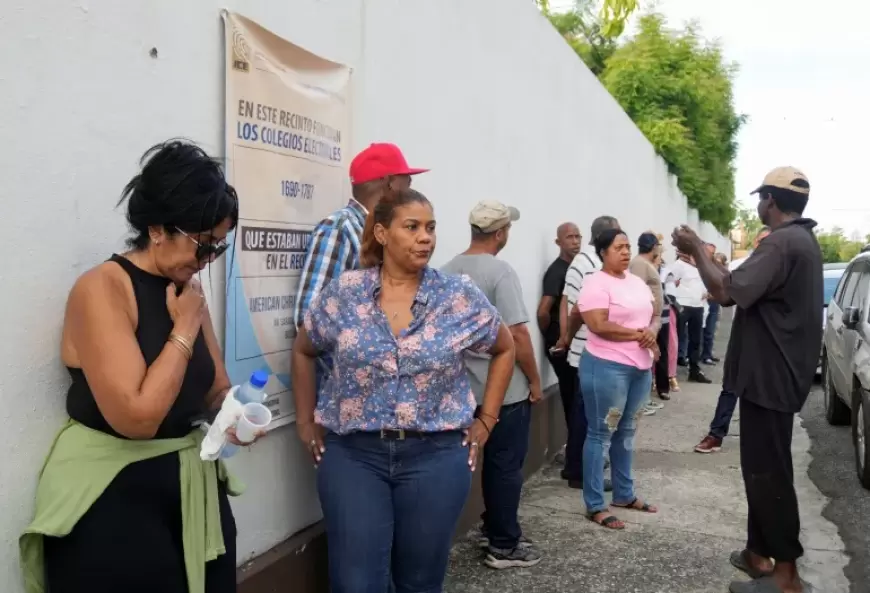Dominican Republic voters head to the polls with eyes on Haiti crisis
Incumbent President Luis Abinader expected to have strong showing as his policies on migration, economy widely popular.

Voters are heading to the polls in the Dominican Republic to cast ballots for the country’s next president, in what is expected to be a referendum on incumbent Luis Abinader and his government’s hardline policy on the country’s border with Haiti.
Up to eight million eligible voters will decide on Sunday which candidate is best suited to take on the fallout from the humanitarian crisis next door, tackle corruption in government and tame inflation and inequality in the Caribbean’s top tourist destination.
Abinader, a former businessman and leader of the Modern Revolutionary Party, is seeking re-election as one of the most popular leaders in the Americas.
He has staked his claim on his handling of the COVID-19 crisis, while his stance on Haiti and a crusade against corruption have helped give him a strong leg up over his two main opponents.
Trailing behind him are former President Leonel Fernandez and Mayor Abel Martinez.
But Abinader is expected to have a strong showing in the first round of voting on Sunday, as his anticorruption agenda and push to grow the country’s economy has resonated with many Dominicans.
But much of his popularity has been fuelled by the government’s harsh crackdown on Haitians and the border the Dominican Republic shares with its neighbour.
Haiti has faced increased political instability since the 2021 assassination of President Jovenel Moise, which spurred a wave of gang violence in the capital, Port-au-Prince, and other parts of the country.
The unrest also pushed thousands of Haitians to flee, with many crossing the border into the Dominican Republic, which is already home to a large Haitian population.
The Dominican government has stepped up deportations of Haitian migrants and announced it was building a border wall to try to prevent Haitians from seeking refuge in the country.
The policy has provoked sharp criticisms from human rights organisations, which have said it is racist and a violation of international law.
“These deportations have resulted in the separation of families. People with valid documents have been deported, people who were born here in the Dominican Republic have been deported,” William Charpantier, coordinator for MENAMIRD, a national roundtable for migrants and refugees in the Dominican Republic, told Al Jazeera in 2022.
“These aren’t deportations. It’s persecution based on race.”

But the government’s policies remain popular, as does Abinader, whose approval ratings sat at about 70 percent, according to a CID-Gallup poll in September.
“This migratory problem worries me, because we’re seeing a massive migration from our neighbor and it feels like it’s out of control,” Perla Concepcion, a 29-year-old secretary, told The Associated Press ahead of Sunday’s vote.
She said migration was her main concern as she took to the polls.
If Abinader tops 50 percent of the vote, he will win another term without proceeding to a second round of voting. If no candidate receives more than 50 percent of the vote, a second round will be held on June 30.
Dominicans are also voting in legislative elections on Sunday.
Voting for the president and Congress formally began at 7am (11:00 GMT) and will go until 5pm (21:00 GMT), with initial results expected at about 8pm (00:00 GMT on Monday).































